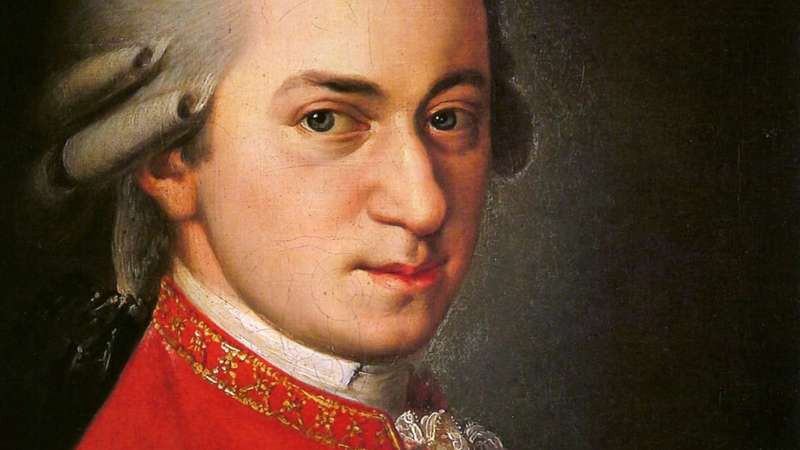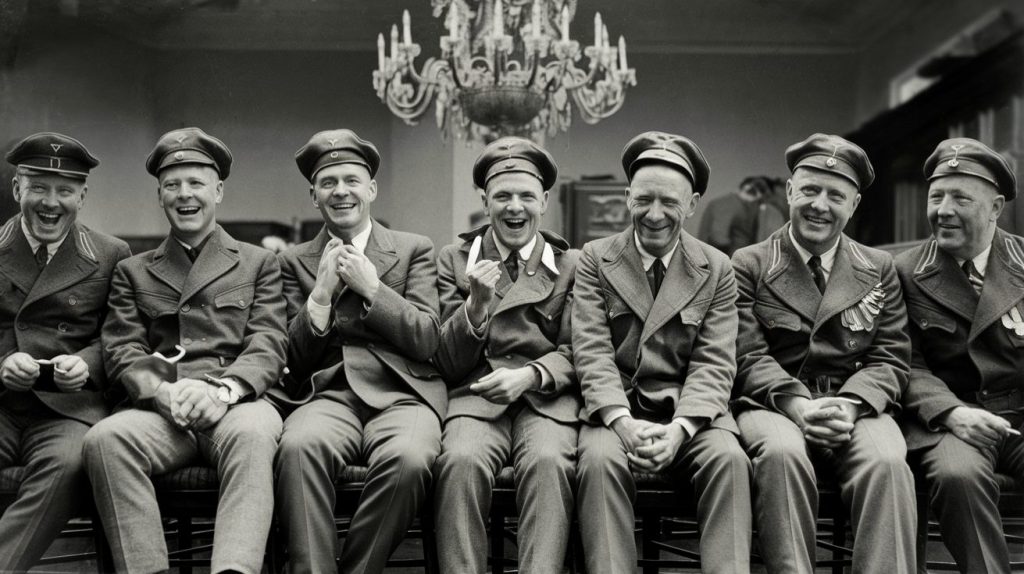 ozart’s death remains an unsolved mystery. Even now, the untimely death of the musical genius remains shrouded in mystery. What was the real cause of Mozart’s death? And what was the reason for his wife Constanze’s mysterious behavior? There is much speculation about Mozart’s unexplained death, characterized by a strong contradiction between those who claim he was poisoned and those who say he died of natural causes. But neither camp has a firm answer and both theories are weak.
ozart’s death remains an unsolved mystery. Even now, the untimely death of the musical genius remains shrouded in mystery. What was the real cause of Mozart’s death? And what was the reason for his wife Constanze’s mysterious behavior? There is much speculation about Mozart’s unexplained death, characterized by a strong contradiction between those who claim he was poisoned and those who say he died of natural causes. But neither camp has a firm answer and both theories are weak.
So what are the real causes of Mozart’s death?
Mozart had been lying in bed for several weeks when, on December 4, 1791, his health deteriorated severely. His very swollen limbs went into convulsions and Mozart had a fever. After losing consciousness, he gave his last breath at 12:55 pm on December 5, in the arms of Constanze’s younger sister, Sophie. Mozart was only 35 years old.
A long period of time and even to this day, Mozart’s death raises many questions. The direct cause of death is not known. No official autopsy took place and no death certificate was issued, despite rumors of his unexplained death … Was there any reason to hide the real cause of Mozart’s death?
For example, although he had many supporters, he was buried at the communal cemetery. In addition, because there is no clear evidence of the cause of his death, numerous theories claim that it was either poisoning or natural death.
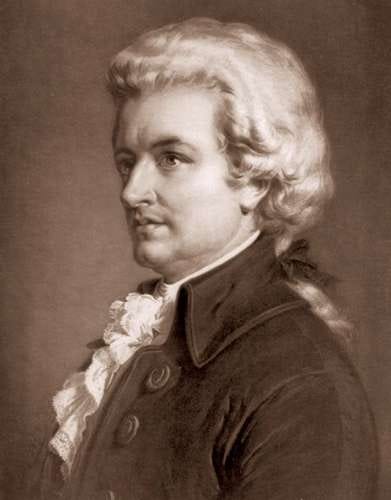
Six months before his death, it is said that, while walking with Constanze, Mozart would have told her he was certain he had been poisoned. And just a short time before he died, Mozart had symptoms such as vomiting, seizures, limb deformities, and symptoms that suggest it was poisoning. This led to the rumor that he was poisoned. Possible culprits include court composer Antonio Salieri, Freemasons, Constanze, Mozart’s wife, his student Sussmayer and Hofdemel, a clerk at the court of justice.
The theory that Salieri had poisoned him was hastened by Salieri’s own recognition, after trying to commit suicide in 1823, that he had poisoned the composer. The movie “Amadeus” was based on this version of events, but many doubts remain about this theory, according to which Salieri would be guilty. First, he had little reason to do so. Is it possible that envy alone can lead to murder?
Mozart was certainly entitled to be suspicious, because “Figaro’s wedding” was canceled after only 10 performances, he was prevented from becoming the piano teacher of Joseph II’s younger cousin and deputy chaplain. Mozart may have been given a slow-acting poison. The fact that Salieri had the opportunity to poison Mozart for a long time is questionable. This assumption regarding Salieri’s guilt is dramatic, but he lacks credibility.
There is also the assumption that Mozart was assassinated by Freemasons. This theory was born in 1861, when Georg Friedrich Daumer, a converted Catholic, claimed that Mozart had been killed by Freemasons who wanted to thwart his plans to create a Freemason Lodge called “Grotta.” (Another theory claims that Mozart did not intend to establish a Masonic lodge, but a new secret society). This theory resisted until the twentieth century and led to rumors that Mozart would have been killed because he revealed Masonic secrets in the “Flute Charm”.
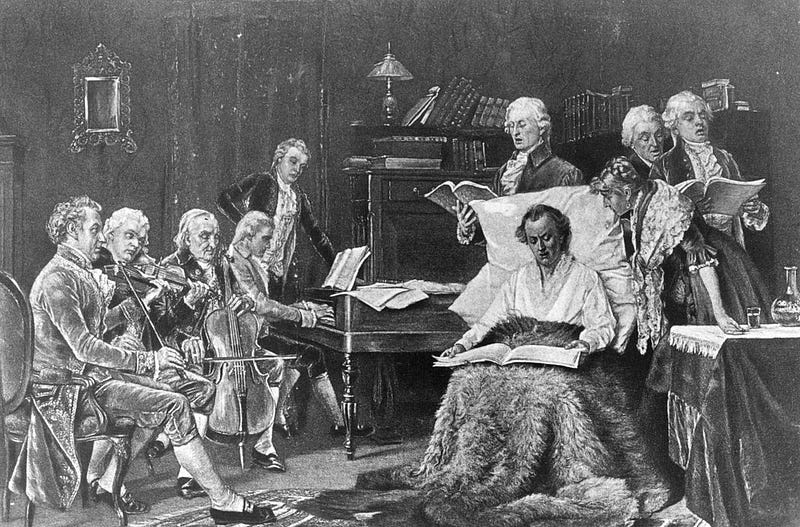
During the Nazi period, psychiatrist Mathilde Ludendorf cited Mozart’s death as a reason for the eradication of the Freemasons. However, since the establishment of a new lodge would have only increased the influence of the Freemasons, it certainly could not have been more welcome than to provoke hostility.
If the motive was indeed the “Flute Charm,” why wasn’t the Libertarian Schikaneder killed too? As for the case of Mathilde Ludendorff, the Nazis used Mozart’s death to promote anti-Semitism. At that time, the Nazis considered the Freemasons a front of the Jewish global revolution. Like the Salieri theory, the Masonic theory seems to lack credibility.
Was Mozart ready to die sick and lie in bed? The register of the dead in St. Stephen’s Cathedral in Vienna shows that Mozart’s death came from an “acute miliary fever”, and how the Mozarteum International Foundation adopts this position regarding Mozart’s death, as arising from natural causes, this can be taken into account. as an official position. However, “miliary fever” has skin rashes and high temperatures and is not the name of a disease.
Dr. Thomas Franz Closet, who was with Mozart in his last moments, left no record of Mozart’s symptoms or a death certificate, so the name of the disease cannot be established. It is also strange that the first record of the cause of Mozart’s death — the so-called Guldener Report — was established in 1824, 34 years after his death by Dr. Eduard Guldener von Lobes, of the University of Vienna. Hearing Dr. Closset’s story, he recorded the cause of death as “inflammatory rheumatic fever.” But this appears as part of a written opinion, sent to Italian music critic Giuseppe Carpani, to remove his Italian comrade Salieri from the poisoning theory.
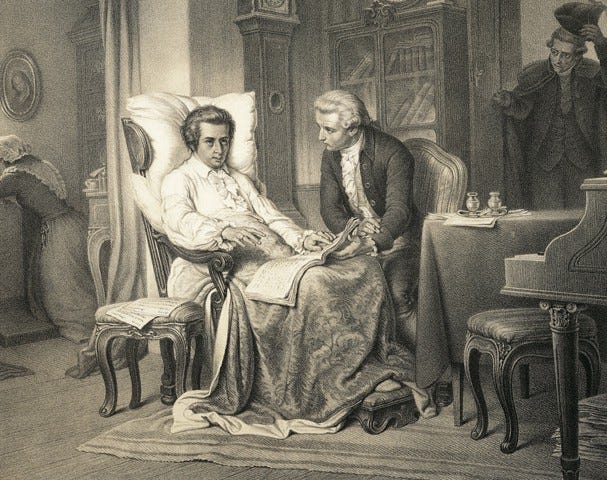
There is also the theory of mercury poisoning. Namely, although Mozart feared he would contract a sexually transmitted disease, he was, in fact, a woman and had been infected with syphilis. Following a consultation by Baron van Swieten, he was treated with a mercury-based preparation, which resulted in his death.
Of all his friends, van Swieten was the first one who rushed to be with Mozart and made the funeral arrangements. However, he had behaved strangely. An example is that he banished those who came to mourn Mozart from the funeral. If this had come to light, Baron van Swieten’s responsibility would have been great. But this theory is also an assumption based on incidental evidence, namely that Mozart was buried in the communal cemetery for fear that this incident would have been revealed.
Finally, the debate is like a vicious circle. On the one hand, the fact that Mozart’s disease cannot be identified supports the poisoning theory, on the other hand, the lack of suspicion, motive, and evidence leads to the theory of death from natural causes. If in recent years there has been a tendency to dismantle the theory of death caused by Freemasons, the discussion remains open today, and theories that death occurred as a result of poisoning or natural causes still need evidence to be accepted.
Avid Writer with invaluable knowledge of Humanity!
Upcoming historian with over 30 million views online.
“You make your own life.”


